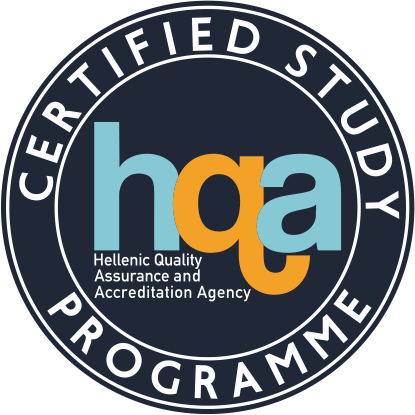| School |
Natural Sciences |
Academic Unit
|
Geology Department |
Level of Studies
|
Undergraduate |
Course Code
|
GEO_404 |
| Εξάμηνο σπουδών |
3ο |
Course Title
|
Geophysics |
Independent Teaching Activities
|
Lectures and laboratory work |
Weekly Teaching Hours
|
2 (lectures), 2 (laboratory) |
| Credits |
6 |
Course Type
|
Basic, General Knowledge, Scientific area |
Prerequisite Courses
|
Physics I, Physics II. |
Language of Instruction & Examinations
|
Greek |
Is the Course offered to Erasmus Students
|
Υes, (in English) |
| Course Web-Page (URL) |
https://eclass.upatras.gr/courses/GEO343/ |
Learning Outcomes
|
This course is introductory to the concepts and applications of geophysics, after its successful completion the student should be able to:
- Have knowledge of the principles of Geophysics/ applied geophysics
- Solve problems concerning geophysics applying acquired knowledge
Knowledge
Understanding of principles of Solid Earth geophysics and subjects concerning geoelectrics, geomagnetism, gravitational field of the Earth, heat flow in earth’s interior etc In addition, understanding of the theoretical basis/ principles of the main geophysical methods (seismic, geoelectric, geomagnetic, gravity, electromagnetic, GPR)
Skills
- Application of acquired knowledge in understanding/ solving geophysical problems
- Application of acquired knowledge for selecting appropriate geophysical method or combing geophysical methods for solution of problems
- Basic skills in geophysical data processing
Abilities
- Ability to demonstrate knowledge and understanding of essential facts, concepts, principles and theories relating to geophysical theory and problems
- Ability to solve geophysical problems, using acquired knowledge and understanding of geophysics
- Ability of basic processing and interpretation of geophysical data.
- Ability to interact with other students in order to solve geophysical problems
- Ability to work in a team
|
General Competences
|
By the end of this course the student will, furthermore, have developed the following skills (general abilities):
- Ability to apply acquired knowledge and understanding to the solution of problems related to geophysical data processing
- Ability to solve problems.
- Ability to prepare and execute searching, analysis and synthesis of data and related information
- Ability to interact with others in problem solving
|
| Syllabus |
- Introduction to Geophysics Principles, Branches of geophysics. Geophysical survey design.
- Seismic Methods : Principles, introduction, elastic constants, seismic waves and their propagation. Seismic refraction, seismic reflection.
- Gravity method : Principles, Earth’s gravity field, Shape of the earth. Isostasy. Gravity filed measurements. Gravity meters. Gravity measurements corrections. Gravity anomalies of simple bodies
- Magnetic methods : Earth’s magnetic field, Geomagnetic measurements and corrections. Paleomagnetism Magnetometers. Magnetic anomalies of simple bodies
- Geoelectrical methods : Electric current propagating in earth, Resistance-Resistivity- Apparent resistivity. Geoelectrical arrays and measurements Geoelectrical data processing and analysis. Self Potential method IP method.
- Electromagnetic methods : Principles, Natural source EM methods, controlled source EM methods. GPR
- Well Logging : Principles, methods and applications
- Radiometry – Heat flow in the Earth’s interior, Age of the Earth, radiochronology
|
| Delivery |
Lectures in class, laboratory exercises and field demonstrations |
Use of Information & Communication Technology
|
- Use of Information and Communication Technologies (ICTs) in teaching.
- The lectures content of the course, for each chapter, are uploaded in the eclass platform. The same is done for laboratory exercises together with the appropriate presentation. Interaction with students is done through email and the eclass platform as well.
|
Teaching Methods
|
| Activity |
Semester workload |
| Lectures |
2×13=26 |
| Laboratory exercises with focus on understanding of basic principles |
2×13=26 |
| Field demonstrations of the equipment |
10 |
| Solution of exercises and detailed analysis of them |
20 |
| Study of literature |
20 |
| Hours for private study of the student |
48 |
| Total number of hours for the Course |
150 hours |
|
Student Performance Evaluation
|
The assessment is done in the following way:
- Written examination after the end of the semester which includes
- Short answer theory based questions
- Essay answer questions
- Assessment questions
- Problem solving questions
|
Attached Bibliography
|
- Lecture notes (eclass)
- «Applied Geophysics», Tselentis G-A., Paraskevopoulos P., Pub. Liberal Books, Athens, 2013. (In Greek)
- «Introduction to Geophysics», Papazachos B., Pub. Ziti, 2008. (In Greek)
|





